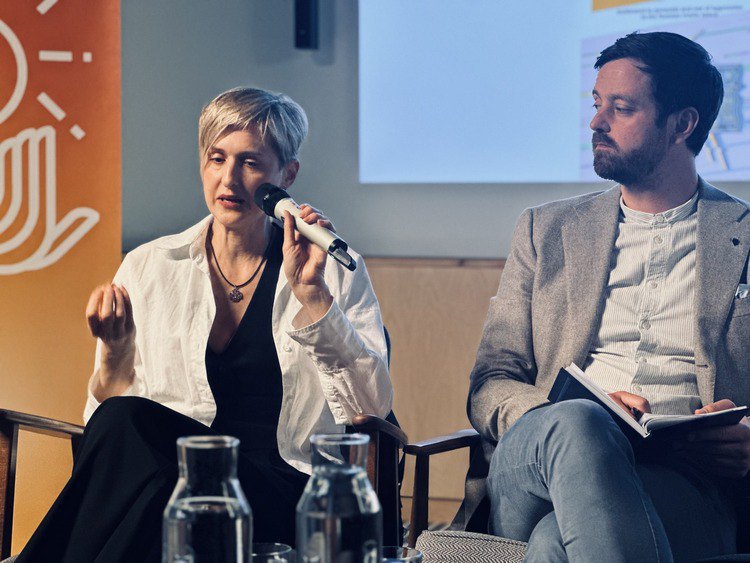On 25 June, the Pilecki Institute Berlin hosted a panel discussion on the characteristics of Russian propaganda in Russia and Germany. The event was attended by leading experts. The Ukrainian Institute wrote about this on its Facebook page.
"Russian disinformation and propaganda are constantly transforming, adapting and imitating various formats, both in general and in the context of cultural diplomacy in particular. Our task is not only to identify these manifestations, but also to actively counteract them. In particular, through cultural diplomacy," emphasised Mariya Protsyuk, deputy head of the research, analytics and academic programmes department at the Ukrainian Institute.

At the same time, Mattia Nelles, member of the board of the German-Ukrainian Society (DUG), expert on Ukrainian issues and managing director and co-founder of the German-Ukrainian Office (DUB), noted: "Russia perceives itself to be at war with the West and deliberately uses the freedoms of our open societies against us. The goal of Russian influence, particularly through propaganda, is to impose its agenda on public discourse in the West and systematically strengthen the positions of enemies of democracy."
Iryna Baran El Ghali, international advocacy manager at the Crimean Human Rights Group, emphasised: “It is quite difficult to prove a direct link between propaganda and the commission of crimes” because, in her words, “unfortunately, there are very few tools to hold people accountable for incitement to genocide. Current international law does not yet take into account the dissemination of information in the online space or the vagueness of certain definitions."
She stressed: "It is extremely important to carry out constant monitoring, build a body of evidence and raise the issue of accountability for propaganda of genocide at all levels. There are already precedents where certain well-known propagandists have been added to personal sanctions lists, but it is clear that this list needs to be significantly expanded and should not be limited to sanctions alone."
The event was organised by the Ukrainisches Institut in Deutschland, the Crimean Human Rights Group, the Pilecki Institute in Berlin and the German-Ukrainian Society.










